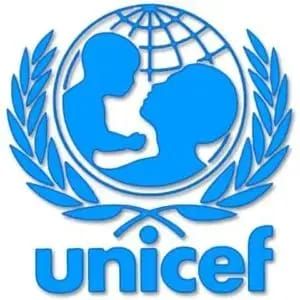As the humanitarian crisis deepens for victims displaced by armed herdsmen attacks in Yelewata, Guma Local Government Area of Benue State, the United Nations Children’s Fund (UNICEF) has stepped in with critical interventions to address water, hygiene, and healthcare needs.
The Internally Displaced Persons (IDPs), currently camped at the Makurdi International Market, number over 4,685. Responding to the dire situation, UNICEF is now supplying over 30,000 litres of water daily, ensuring that each individual has access to at least 15 litres of water per day.
Speaking to journalists at the camp, Mrs. Rebecca Bolatito-Gabriel, Water, Sanitation and Hygiene (WASH) Specialist from the UNICEF Enugu Field Office, explained that the lack of access to clean water was one of the most urgent challenges when the camp was established.
“In response, UNICEF procured and installed two water bladders with a capacity of 10,000 litres each, and revitalized abandoned boreholes within the camp,” she said.
Mrs. Bolatito-Gabriel added that the organisation is working to ensure that the IDPs utilize the available 36 water system toilets to improve hygiene and curb the spread of infectious diseases. She emphasized that the intervention aims to eliminate open defecation and prevent potential outbreaks of diseases like cholera.
To sustain hygienic practices, UNICEF has engaged 50 hygiene promoters, many of whom are members of the IDP community, to champion improved environmental sanitation within the camp.
In her remarks, Dr. Ifeyinwa Anyanyo, Health Specialist at the UNICEF Enugu Field Office, said the organisation has provided healthcare services to 910 persons, including overseeing four safe deliveries.
She noted that UNICEF is offering an integrated package of primary healthcare services, including antenatal care for pregnant women in the camp, as part of efforts to safeguard the health and well-being of the displaced population.
The intervention by UNICEF brings much-needed relief to the IDPs who have endured harsh living conditions since being forced from their homes by the escalating insecurity in Benue State.















